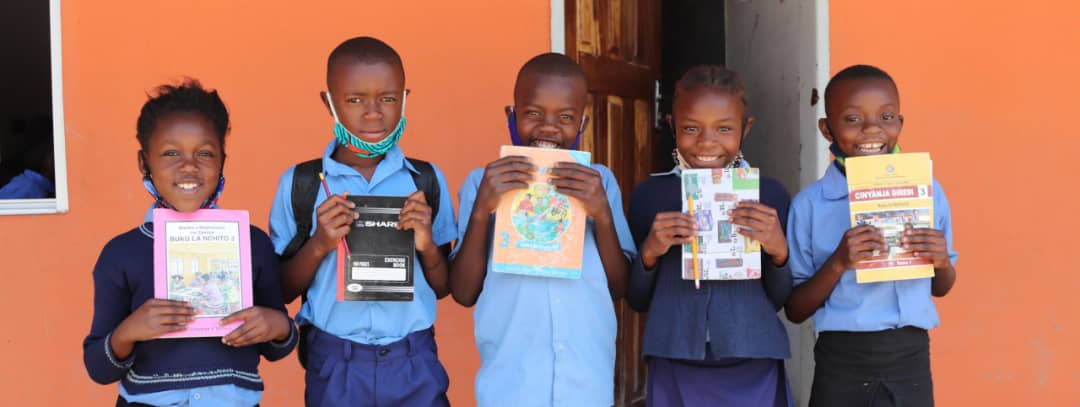
Our Mission
To show the world that every child regardless of their needs, deserves to have a loving childhood and to be treated with dignity and care.

To show the world that every child regardless of their needs, deserves to have a loving childhood and to be treated with dignity and care.
Orphans in rural areas often face unique challenges due to limited resources and support systems. Here are some common challenges and potential solutions:
Challenges:
Lack of Basic Needs: Orphans may struggle to access essentials like food, clean water, clothing, and shelter.
Limited Education: Many rural orphans have reduced access to quality education, hindering their future prospects.
Healthcare: They may lack access to healthcare services, making them vulnerable to illness and disease.
Emotional Support: Orphans often experience emotional trauma and may lack adequate emotional support.
Economic Vulnerability: They may face economic hardships, as they may not have the means to support themselves or their families.
Solutions:
Community Support: Engage the local community to provide basic needs like food, clothing, and shelter through donations, community gardens, and collective efforts.
ORPHANS
Orphans in rural areas often face unique challenges due to limited resources and support systems. Here are some common challenges and potential solutions:
Challenges:
Lack of Basic Needs: Orphans may struggle to access essentials like food, clean water, clothing, and shelter.
Limited Education: Many rural orphans have reduced access to quality education, hindering their future prospects.
Healthcare: They may lack access to healthcare services, making them vulnerable to illness and disease.
Emotional Support: Orphans often experience emotional trauma and may lack adequate emotional support.
Economic Vulnerability: They may face economic hardships, as they may not have the means to support themselves or their families.
Solutions:
Community Support: Engage the local community to provide basic needs like food, clothing, and shelter through donations, community gardens, and collective efforts.
Education Initiatives: Establish or support schools, provide scholarships, and offer tutoring to ensure orphaned children receive an education.
Healthcare Access: Set up mobile clinics or partner with healthcare organizations to provide regular health check-ups and vaccinations to orphaned children.
Mentoring and Counseling: Arrange for mentors or counselors who can provide emotional support and guidance to orphaned children.
Economic Empowerment: Create vocational training programs or microfinance opportunities to empower orphans and caretakers to generate income.
Legal Protection: Ensure orphans have access to legal resources, such as guardianship arrangements or inheritance rights, to protect their interests.
Nutrition Programs: Implement nutrition programs to address malnutrition and ensure that orphaned children have access to balanced meals.
Safe Spaces: Establish safe and nurturing environments where orphans can socialize, play, and learn life skills.
Psychosocial Support: Train teachers and caregivers to recognize and address the emotional needs of orphaned children, and provide counseling services when needed.
Advocacy: Raise awareness about the challenges faced by rural orphans and advocate for government policies and resources to support them.
Efforts to support rural orphans should involve collaboration between local communities, non-governmental organizations, and government agencies to create sustainable solutions that address their unique challenges and help them thrive.
Education Initiatives: Establish or support schools, provide scholarships, and offer tutoring to ensure orphaned children receive an education.
Healthcare Access: Set up mobile clinics or partner with healthcare organizations to provide regular health check-ups and vaccinations to orphaned children.
Mentoring and Counseling: Arrange for mentors or counselors who can provide emotional support and guidance to orphaned children.
Economic Empowerment: Create vocational training programs or microfinance opportunities to empower orphans and caretakers to generate income.
Legal Protection: Ensure orphans have access to legal resources, such as guardianship arrangements or inheritance rights, to protect their interests.
Nutrition Programs: Implement nutrition programs to address malnutrition and ensure that orphaned children have access to balanced meals.
Safe Spaces: Establish safe and nurturing environments where orphans can socialize, play, and learn life skills.
Psychosocial Support: Train teachers and caregivers to recognize and address the emotional needs of orphaned children, and provide counseling services when needed.
Advocacy: Raise awareness about the challenges faced by rural orphans and advocate for government policies and resources to support them.
Efforts to support rural orphans should involve collaboration between local communities, non-governmental organizations, and government agencies to create sustainable solutions that address their unique challenges and help them thrive.

Chief Executive Officer

Secretary

Treasury

Volunteer
© 2023 All Rights Reserved.